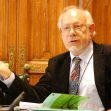Brexit uncertainty continues, not just about when and how we might leave the EU, but about what food trading and supply chain conditions may prevail after we have left, whatever the circumstances. In this context, Local Authorities (LAs), which have specific legal responsibilities in relation to food and which are also repositories of expertise on local food systems, will be in the front line in coping with the challenges that arise. This Briefing updates the Guidance on food Brexit planning for LAs that we published in November 2018. It reiterates the need for LAs to locate and draw together existing expertise within public authorities, create food resilience teams, identify and plan for possible scenarios, and ‘be the local voice for food’. Additionally, it recommends that LAs should:
- Plan for the social groups for whom they have specific responsibility, including, in some cases, school pupils, the elderly and people in social care.
- Prepare plans for communicating with the public under recommendations issued in 2011, ancillary to the 2004 Civil Contingencies Act.
- Liaise with other LAs and national professional bodies.
- Maintain pressure on central Government to provide better information about food supply risks.
- Liaise with representatives of food companies located in their geographical areas to ensure as full understanding as is possible, in accordance with their corporate lines of communication.







